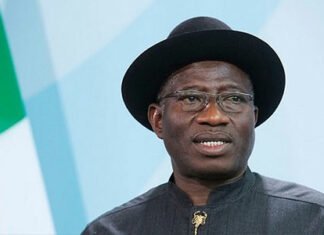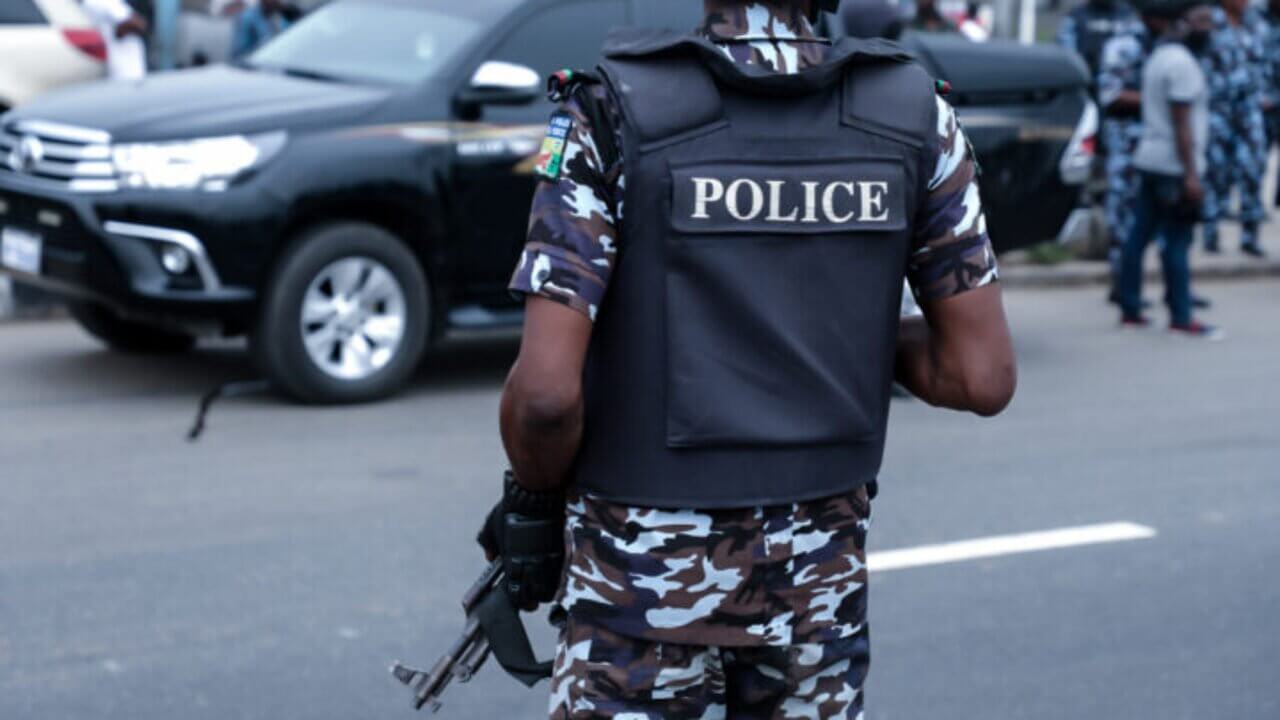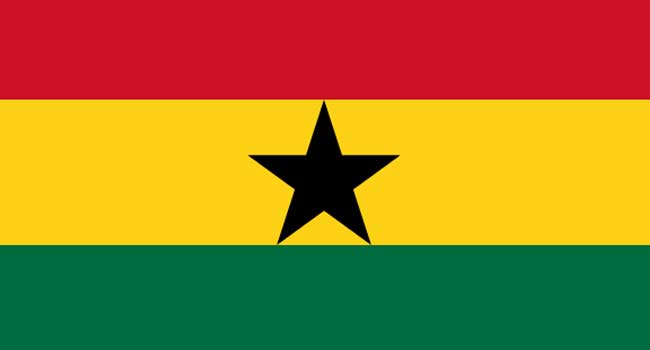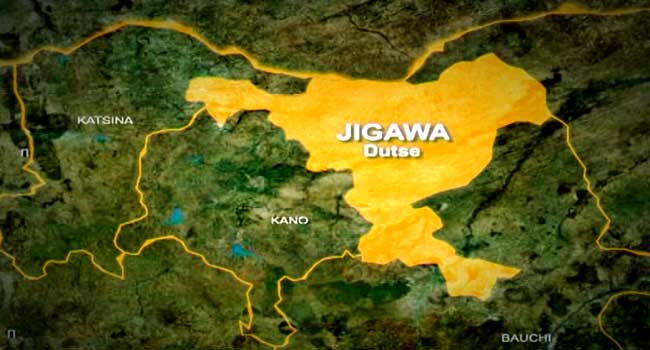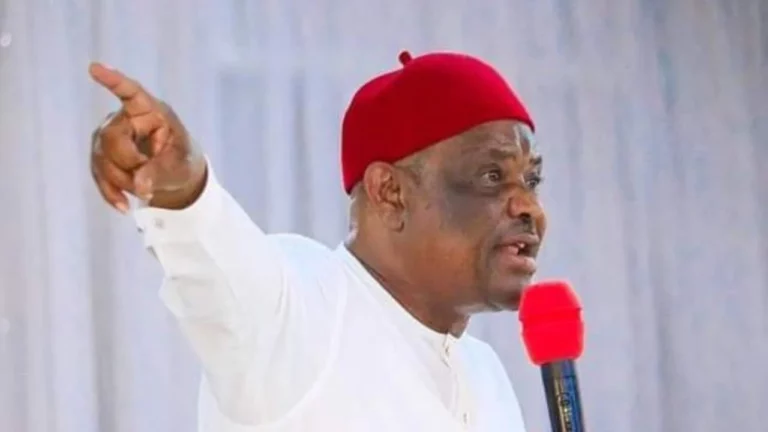By Eric Ikhilae
Before April 22, 2022. the idea of ex-President Goodluck Jonathan being drafted to contest the next presidential election as a candidate of the All Progressives Congress (APC) was considered speculation, often amplified by the occasional appearances of his posters in strategic locations across the country.
But, on April 22, Jonathan spoke publicly on the issue when a group of individuals, claiming to be his supporters, visited him in Abuja. Although the ex-president sounded ambivalent, he was not categorical in denying the possibility of him contesting the next presidential election.
He was quoted as telling his visitors: “I cannot declare because some processes are still ongoing. Yes, you are calling on me to come and declare for the next election. I cannot tell you I’m declaring. The political process is ongoing; just watch out. The key role you must play is that Nigeria must get somebody that will carry young people along.”
The April 22 incident has since ignited a huge debate about Jonathan’s eligibility or otherwise for the next presidential election in the face of some provisions in the 4th Alteration to the Constitution and existing judicial authorities.
While many argue that the provision in Section 137(3) to the Constitution, among other provisions, have disabled Jonathan from further seeking to be president, others hold contrary views, insisting that he was not encumbered by any known law or judicial authorities.
Jonathan’s story
Jonathan, who assumed office on May 29, 2007 as a Vice President, with the late Umar Yar’Adua as the President, was named Acting President on February 9, 2010, following the doctrine of necessity initiative by the Senate of Nigeria, owing to President Yar’Adua’s prolonged medical trip to Saudi Arabia in November 2009.
Following President Umaru Yar’Adua’s death on May 5, 2010, Acting President Jonathan took the oath of office as the substantive President on May 6, 2010.
Upon winning the next presidential election, Jonathan again took the oath of office on May 29, 2011 as the President but lost the 2015 presidential election, which he contested on the platform of the Peoples Democratic Party (PDP) to the candidate of the APC, now President Muhammadu Buhari.
With Buhari rounding off his second term, amidst heightening political jostling among politicians in preparation for next year’s presidential election, the rumoured drafting of Jonathan by some interests within the APC has become an issue of interest to many.
This is because, not only is he known as a PDP member, it is not yet in public that Jonathan has defected to the APC. The plot becomes more intriguing when viewed against the fact that the Buhari-government has not ceased to blame Jonathan for the nation’s woes, accusing him of being the cause of all the nation’s troubles.
The fact that Jonathan chose to be ambivalent during the April 22 encounter with his so-called supporters, who urged him to declare, has further sustained the rumour, which now informed the debate about his eligibility in the face of the provision of Section 137(3).
The 4th Alteration
In view of the nation’s experience between 2011 and 2015, the National Assembly took it upon itself to effect some amendments to the Constitution, which resulted in the 4th Alteration to the Constitution. One of the issues addressed by the 4th Alteration was the question raised prior to the 2015 presidential election – whether Jonathan could take the oath of office as a president for the third time in the face of the provision of Section 137(1)(b) of the Constitution.
Section 137(1)(b) provides that: “a person shall not be qualified for election to the office of President if he has been elected to such office at any two previous elections.”
The question was litigated up to the Court of Appeal in a case, first filed at the High Court of the Federal Capital Territory (FCT) in 2012 by a member of the PDP, Cyriacus Njoku, with Jonathan, the PDP and the Independent National Electoral Commission (INEC) as defendants.
Njoku contended among others that, having taken the oath of office twice as a president (2010 and 2011) Jonathan was barred by sections 135(2) and 137(1)(b) of the Constitution from contesting in 2015 for the post of president.
In a judgment on March 1, 2013, Justice Mudashiru Oniyangi held in favour of Jonathan, a decision Njoku appealed at the Court of Appeal in Abuja in 2013.
He raised two issues for determination in the appeal. They were:
*Whether Section 135(2) of the Constitution which specifies a period of four years in office for the President is only available or applicable to a person elected on the basis of an actual election or includes one in which a person assumes the position of President by operation of law as in the case of Dr. Goodluck Jonathan.
*Whether Section 137(1) (b) of the Constitution of the Federal Republic of Nigeria 1999, which provides that a person shall not be qualified for election to the office of President if he has been elected to such office at any two previous elections applies to the 1st Defendant who first took an Oath of Office as substantive President on May 6, 2010 and took a second Oath of Office as President on May 29, 2011.
In its judgment on March 3, 2015 a five-member panel of the Court of Appeal was unanimous in holding that the oath that Jonathan took in 2010 was merely to complete the unexpired tenure of the late President Yar’Adua.
It further held that by virtue of Section 135 (2)(b) of the 1999 Constitution, Jonathan only took his first oath as a president in May, 2011, adding that disqualification is through election, not oath taking.
In the lead judgment, Justice Abubakar Yahaya said: ”In this appeal, it is not controverted by the appellant that the first oath taken by the first defendant (Jonathan) was the oath he took as the Vice President and not as President… But he took the oath in May 2010 to complete the unexpired tenure of the late Umaru Musa Yar’Adua.
“Section 137(1)(b) disqualifies a person from contesting for president if he had been elected twice. Disqualification is through election and not oath taking. Election is a process of choosing a person to occupy a position by voting.
“When election is given its literal meaning, it connotes when a voting is employed to choose a person for political office. This did not take place when Jonathan stepped into the shoes of his Principal who went to the great beyond.
“To say these things were done is to import words not used by the constitution. Section 146(1) of the constitution cannot be deemed an election for a VP to step into the office of a President. Election involves conducting primaries by party, nomination, election and announcement of results. All these processes were not done.
“If a Vice President succeeds a President that dies, that cannot be challenged. It is a mode of stepping into the vacant office provided for by the constitution. When a President dies, the Vice President automatically becomes President as provided for by Section 130 (1)(2) of the 1999 Constitution… It was not election that produced the first respondent (Jonathan) in May 2010, the oath he took then was not an oath of elected President as provided for by Section 180 of the Constitution.
“The process of election was followed in 2011. The oath of office taken in 2011 was the first oath taken by the first respondent as an elected President having fulfilled all the process of election.… Again, the succession of a Vice-President to the office of a President, who died, in accordance with Section 146(1) of the 1999 Constitution, cannot be “deemed an election”, especially for the purpose of taking away a right that has been vested.
“As stated earlier, an election under the 1999 Constitution involves primaries, nominations, voting and declaration of results. That is the mode prescribed in electing a President, and once it is so prescribed, it must be followed, and no other method can be employed.
“All these processes can be challenged in a Court of law and if successful, the election would be annulled. But if a Vice-President succeeds a President who died, that cannot be challenged because it is a Constitutional provision, and the succession cannot be annulled.
“It is a mode of assumption to the office of the demised President, an ‘appointment’ by the constitution, as it were, as no letter of appointment is necessary from anybody. The Vice-President automatically becomes the President, by virtue of his being the Vice-President.”
It was in an effort to prevent the possibility of having someone occupy the seat of the president more than the constitutionally stipulated eight years, as Jonathan almost did but for his defeat in 2015 that the National Assembly added sub-section 3 to section 137 of the constitution.
Section 137(3) provides: “A person who was sworn-in as president to complete the term for which another person was elected shall not be elected to such office for more than a single term.”
The enactment known as the Fourth Alteration (No 16) Act 2017 was assented to in June 2018 by President Muhammadu Buhari.
The debate
Jonathan’s decision to keep his rumoured interest in contesting the next presidential election alive by electing to sound ambivalent on April 22 forced many, particularly law experts to begin to debate his eligibility or otherwise for the election in view of the provision of Section 137(3) of the constitution.
A Senior Advocate of Nigeria, Femi Falana ignited the debate with his argument, last week, that Jonathan could no longer seek election to the seat of the nation’s president having been barred by constitutional provisions and judicial decisions by the Supreme Court.
Telegram
Falana said: “Dr. Jonathan is disqualified from contesting the 2023 presidential election. The reason is that, if he wins the election, he will spend an additional term of four years. It means that he would spend a cumulative period of nine years as President of Nigeria in utter breach of Section 137 of the constitution which provides for a maximum two terms of eight years.
He further argued that in view of the provision of Section 137 (3) of the constitution, Jonathan could not seek a re-election to the office of the president having completed the tenure of the late President Yar’adua and sworn in again for a full four-year term in 2011 upon winning the presidential election in his own name.
Although many lawyers, including Mike Ozekhome (SAN), Reuben Atabo (SAN), Abubakar Sani and Daniel Makolo have argued that amendment to the constitution which came into effect in 2018 could not be retrospectively applied to the Jonathan case that occurred in 2015, Falana thinks otherwise, citing judicial authorities to support his position.
Falana argued: “Assuming without conceding that the amendment is not retrospective, it is submitted that under the current constitution, a president or governor cannot spend more than two terms of eight years. In other words, the constitution will not allow anyone to be in office for more than a cumulative period of eight years.
“In Marwa v. Nyako (2012) 6 NWLR (Pt.1296) 199 at 387 the Supreme Court stated that Section 180 (1) and (2)(a) of the 1999 Constitution of the Federal Republic of Nigeria has prescribed a single term of 4 years and if a second term, another period of four years and not a day longer.
“In the case of Governor Ladoja v INEC (2008)40 WRN 1 the Supreme Court rejected the prayer of Governor Ladoja for 11 months’ extension to cover the period he was kept out of office through illegal impeachment,” he added.
Other lawyers, including Professor Yemi Akinseye-George (SAN), Sebastine Hon (SAN), Musibau Adetunbi (SAN) and Tunde Falola are in agreement with the position held by Falana on the issue.
Akinseye-George equally argued that Jonathan is no longer eligible for election to that office, noting that the principle against retroactive application of laws does not apply to the constitution.
He added: ”Although this amendment to the constitution was signed after he left office, it is applicable to him and any other person caught by the provision. Therefore, let those urging Jonathan to run stop fooling themselves. The plot is dead on arrival. If Jonathan is presented as a candidate, his candidacy will be nullified by virtue of Section 137 (3) of the constitution of the Federal Republic of Nigeria, 1999, as amended.”
Hon, who shared the same view, noted that the 4th Alteration Act of 2017 amended both sections 137 and 182, by adding subsection (3) to each of those provisions, to bar a president and a governor who stepped in to complete the tenure a former holder of that office from being inaugurated into that same office more than once thereafter.
He added: “This amendment was a proactive response to the decision of the Supreme Court in Marwa vs. Nyako (2012), where the issue of alleged tenure elongation by Governor Nyako was in issue. Section 12 of the 1st Alteration Act to the constitution, which would have cured the lacuna, did not effectively cover it; hence the makers of the constitution saw wisdom in effecting further amendments by way of inserting subsection (3) to each of the existing sections 137 and 182.
“The mischief sought to be cured, in my humble opinion, is to prevent dominance by one individual in the political space, by stopping him from occupying such a high office applicable to his case for too long. Call it legislative wisdom to, as much as possible, curtail authoritarianism and dictatorship,” Hon said.
While Adetunbi simply said he sees Falana’s position as “the correct position of the law, Falola dwelt on a legal analysis of the various angles to the debate and concluded that the 4th Alteration could be legitimately applied to disable Jonathan.
Falola said: “Without mincing words, Section 137(3) of the constitution bothers on substantive matters, that is, the right to contest for the 2023 Presidential election in Nigeria. To this end, it cannot be interpreted retrospectively.
“In other words, ordinarily, former President Jonathan cannot be prevented from contesting the 2023 Presidential election based on the provision of Section 137(3) of the constitution, which came into effect on the 7th day of June 2018, three years after he had been sworn in for a single term after completing the term of President Umoru Yar’adua
“However, for every rule, there is always an exception. The question is, will violent be done to Section 137 (3) or the entire provisions of the 1999 Constitution if the said Section 137(3) is not interpreted retrospectively to bar Jonathan who, having completed the term of the late President Umoru Yar’adua, was also elected for a single term, from contesting the 2023 Presidential election?
“My humble opinion is yes. I say this from the angle of the law that, in interpreting the provision of the constitution or enactment, the court will have to look at the intention of the legislators. In this case, one may ask, what brought about the enactment of Section 137(3) of the constitution by the National Assembly in 2018?
“The answer is very simple, President Jonathan, having completed the term of the late President Umoru Yar’adua, was also elected for a single term of four years. Apart from the foregoing, he equally contested in 2015 against the incumbent. Jonathan would have ended up spending nine years in office (part of Yar’adua tenure inclusive) if he had won the 2015 presidential election, contrary to the provision of the constitution which stipulates eight years of two terms for the President,” he said.
Falola further argued that the National Assembly had no option than to enact the provision of Section 137(3) of the constitution to take care of the anomaly and the constitutional aberration that could have occurred had Jonathan succeeded in 2015.
He added that in law, even though the literary rule of the interpretation of statutes is to the effect that where the words of a statue are clear and unambiguous, as it is in the instant case, the effect must be given to it.
Falola argued that on the other hand, where such interpretation would lead to absurdity or some repugnancy or being inconsistent with the rest of the instrument, in which case the grammatical and ordinary sense may be dispensed with so as to avoid that absurdity and inconsistency.
“This is what is called the Golden Rule in law. A more preferable interpretation that will suit the circumstance of the case,” he said.
Falola added: “It is my humble position that, should this matter be tested in court for adjudication, definitely, the court may be urged to apply the Golden Rule of interpretation to in order to detect the intention of the legislators in enacting the provision of Section 137(3) of the constitution of the Federal Republic of Nigeria
“There is no doubt the fact that the intention will definitely be to cure the absurdity that may likely arise if a person (like Jonathan) is allowed to spend nine years in office as the President of the Federal Republic of Nigeria (assuming he wins 2023 Presidential election) contrary to the provision of the Constitution,” Falola said.
In their counter arguments, Ozekhome, Atabo, Sani and Makolo are holding tenaciously to the position that the 4th Alteration cannot be applied retrospectively/retroactively and that Jonathan is at liberty to run in next year’s presidential election.
Ozekhome argued that the antagonists of Jonathan running in 2022, in their strange line of argument, are mainly relying on Section 137(3) of the 4th Alteration without adverting their minds to sections 141 of the Electoral Act, 2010 (as amended) and section 285(13) of the same 4th Alteration to the 1999 Constitution.
He added: “More revealing is that these antagonists are probably not aware of an extant and subsisting Court of Appeal decision (in the case of Cyriacus Njoku vs. Goodluck Jonathan and others (2015) LPELR-244496 where Jonathan was frontally confronted and challenged before the 2015 presidential election, on the same ground of being ineligible to contest the said 2015 election, having allegedly been elected for two previous terms of office.
“The section 137(3) being relied upon by the antagonists was signed into law in 2018, three years after Jonathan had left office. Can he be caught in its web retrospectively?”
In support of his argument that not even the constitution could be applied retrospectively, Ozekhome cited a portion of the Supreme Court’s decision in the case of Attorney General of the Federation vs. All Nigerian Peoples Party & 2 ORS. (2003) 15 NWLR (Pt. 844) 600, where the court held in 667 that: ‘A constitution, like other statutes, operates prospectively and not retrospectively unless it is expressly provided to be otherwise. Such legislations affect only rights which came into existence after it has been passed.’
Ozekhome added that “It will be grossly unfair, unconstitutional, unconscionable and inequitable to deny Jonathan of the right to contest the 2023 presidential election when our extant laws and appellate court decisions permit him to.
“The question of whether Jonathan really needs to subject his glittering and internationally acclaimed reputation and credentials to the muddy waters of a fresh competition with persons, some of whom were his personal appointees as president, is another matter altogether.
“Only him, and not the present state of the laws in Nigeria, can answer that question and decide his own fate. But, as regards his eligibility to contest, Dr Goodluck Ebele Azikiwe Jonathan is pre-eminently constitutionally, morally and legally qualified to contest the 2023 presidential election,” he said.
Atabo noted that Section 137(3) came into force after Jonathan left office, adding that it was meant to cure the lacuna in the 1999 Constitution particularly when the late President Yar’adua died and the task fell on Jonathan to complete the late president’s term of office.
He added: “Certain issues arose as to whether he can go for another term from May 29th, 2015 and beyond. It is as a result of this development that the amendment was carried out by the National Assembly.
“In a democratic society like Nigeria, legislations or Acts of parliament are not meant to be retroactive like in the military regime, but take effect from the day of assent by the President or Governor as the case may be.
“It is therefore, my considered view that the amendment of the 1999 Constitution, which brought in Section 137(3) cannot be retrospective to bar Dr. Goodluck Ebele Jonathan from contesting, if he so desires,” Atabo said.
While Makolo simply said he disagreed with the position held by Falana and others, Sani supported his position with judicial authorities and insisted that Jonathan was not disabled by any law.
He added: “I believe that only the most bigoted and jaundiced opponent of the former President will continue to insist that he is constitutionally-ineligible to vie for the highest office – either next year or in any other election cycle.
“I posit that the choice is solely his to make and there is absolutely no legal or constitutional impediment or bar to him doing so. I suspect that those who peddle a contrary narrative are motivated by less than altruistic considerations. Is anybody afraid of President Jonathan? That is the question,” Sani said.
Source: TheNation

